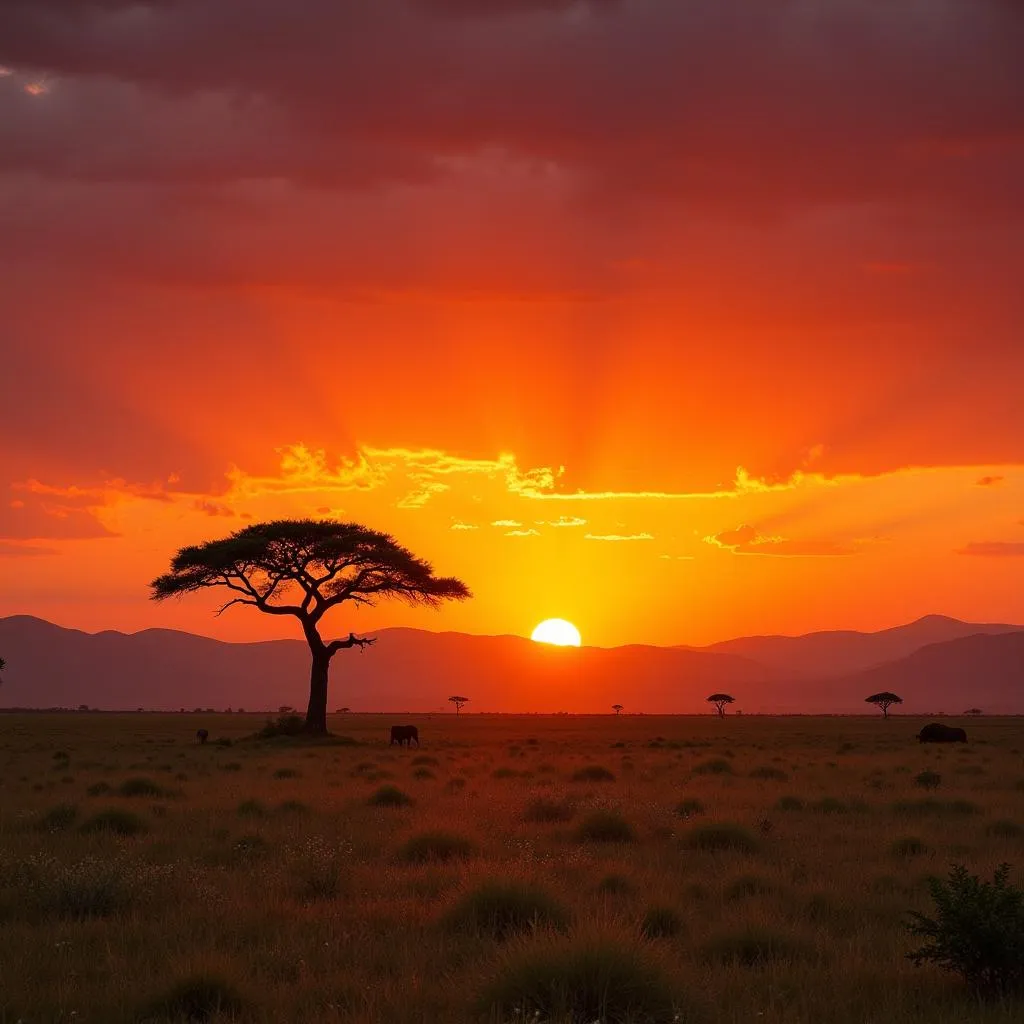Exploring the African Continent Religious Demographic
The African Continent Religious Demographic is a fascinating and complex tapestry woven from indigenous beliefs, Christianity, Islam, and other faiths. This article delves into the diverse religious landscape of Africa, exploring its historical evolution, current trends, and the social and political implications of this diversity.
Africa’s religious landscape has been shaped by centuries of interaction between indigenous spiritual traditions, major world religions, and more recent arrivals. Understanding this dynamic is key to understanding the continent’s present and future. One key influence was the spread of Islam across North Africa and the Sahel region, largely through trade and conquest. Later, the arrival of European colonizers brought Christianity, often supplanting traditional belief systems, though syncretic forms also emerged. Today, the interplay of these faiths continues to shape African societies. For more on the interactions of these faiths, check out resources on African Christian news.
The Dominant Religions of Africa
Two major religions dominate the African continent: Christianity and Islam. While geographically concentrated in specific areas, both faiths have spread throughout the continent, interacting with and influencing existing indigenous beliefs.
Christianity in Africa
Christianity has a long and complex history in Africa, with roots dating back to the early centuries of the Common Era. While initially concentrated in North Africa, the arrival of European missionaries from the 15th century onwards led to its widespread adoption in sub-Saharan Africa. Today, various denominations of Christianity thrive across the continent, from Catholicism and Protestantism to indigenous African Christian churches.
Islam in Africa
Islam has an equally profound presence on the continent, primarily in North Africa, the Sahel region, and parts of East Africa. Its arrival dates back to the 7th century, spreading through trade routes and military expansion. Islam has deeply influenced African culture, shaping art, architecture, law, and social structures. You can find more information on African Muslim communities and their influence.
Indigenous African Religions
Despite the prevalence of Christianity and Islam, indigenous African religions continue to be practiced by a significant portion of the population, particularly in rural areas. These beliefs are diverse and often deeply intertwined with local customs, traditions, and ancestral veneration. They emphasize a close relationship with nature and the spiritual world.
The Importance of Ancestral Veneration
A common thread in many indigenous African religions is the veneration of ancestors. Ancestors are believed to play an active role in the lives of the living, offering guidance and protection. This belief reinforces community bonds and respect for elders.
The Interplay of Faiths
The coexistence of different religious traditions in Africa has led to complex interactions, sometimes harmonious and sometimes marked by tension. Syncretism, the blending of different religious beliefs and practices, is a common phenomenon. For example, some African Christians may incorporate elements of traditional rituals into their religious observances. This has given birth to unique cultural blends that enrich the tapestry of African countries and their religions.
What is the current religious demographic trend in Africa?
The current trend indicates a rise in both Christianity and Islam, with projections suggesting continued growth in the coming decades.
How do religious beliefs influence African societies?
Religious beliefs deeply influence various aspects of African societies, including family structures, social norms, political systems, and even economic activities.
Are there conflicts related to religion in Africa?
While interfaith relations are generally peaceful, conflicts related to religious differences have occurred in some regions.
How are indigenous African religions adapting to modernization?
Indigenous African religions are adapting to modernization in various ways, often incorporating elements of contemporary life while maintaining core beliefs.
The Future of the African Continent Religious Demographic
The African continent religious demographic is dynamic and ever-evolving. Understanding the complex interplay of historical influences, current trends, and social and political factors is essential for navigating the future of the continent. Understanding this demographic shift is important for anyone interested in understanding the socio-political dynamics of the continent. For a better understanding of demographics and cultural blends, consider the case of the African Indian baby. Additionally, if you’re curious about demographic shifts in other parts of the world, researching African American population south can be insightful.
The African continent religious demographic continues to evolve, shaped by internal and external forces. This article has explored the dominant religions, the enduring presence of indigenous beliefs, and the complex interactions between different faiths. Understanding the religious landscape of Africa is crucial for comprehending the continent’s past, present, and future.
FAQ
- What is the most widely practiced religion in Africa? Christianity and Islam are the two most widely practiced religions in Africa.
- What are some examples of indigenous African religions? Examples include Yoruba, Igbo, Akan, and Zulu traditional beliefs.
- How has colonialism impacted the religious landscape of Africa? Colonialism significantly contributed to the spread of Christianity and suppressed indigenous African religions.
- Is there religious tolerance in Africa? While generally there is religious tolerance, instances of conflict have occurred.
- What is the role of religion in African politics? Religion often plays a significant role in African politics, influencing policy and shaping public discourse.
- How does religion influence African art and culture? Religious beliefs are often reflected in African art, music, literature, and other forms of cultural expression.
- What are some of the challenges faced by religious communities in Africa? Challenges include poverty, religious extremism, and interfaith tensions.
If you need further assistance or have any inquiries, please do not hesitate to contact us:
Phone: +255768904061
Email: kaka.mag@gmail.com
Address: Mbarali DC Mawindi, Kangaga, Tanzania
Our customer service team is available 24/7 to assist you.
